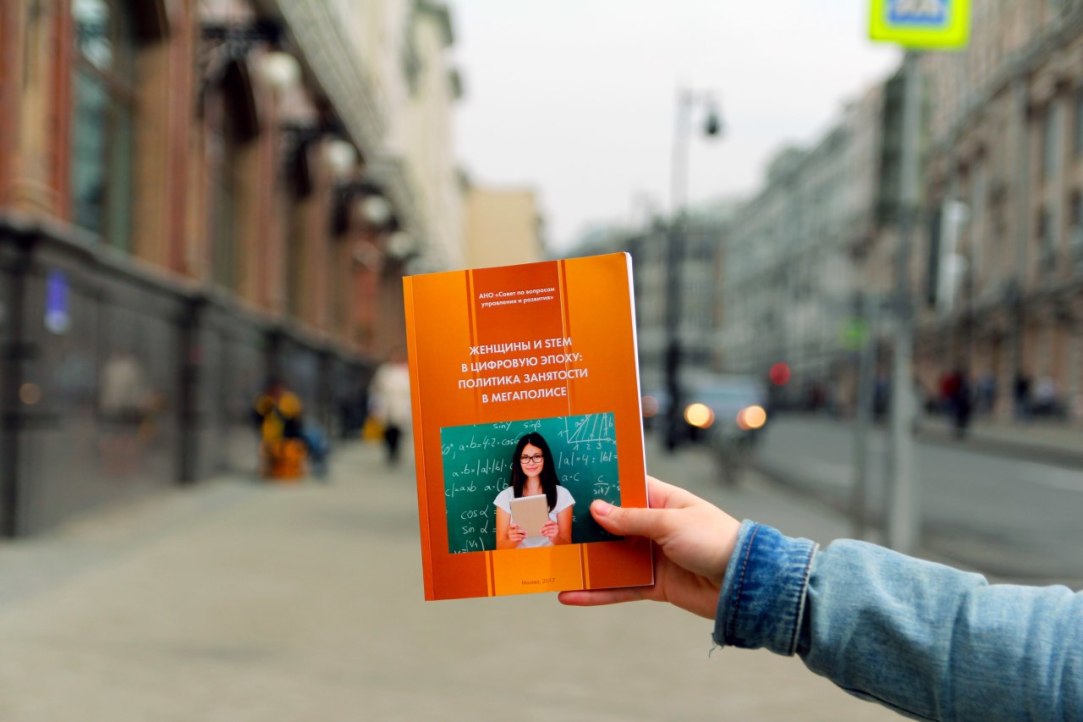Women in STEM: the roundtable at the April Conference
The Roundtable, which was held on the 11th of April during the ХIХ April International Academic Conference on economic and social development, was devoted to the discussion on the role of women in the modern technological future.

The opening of the Roundtable began with a speech given by Olga Bessolova who is the chairman of the Eurasian Women's Forum. She profoundly noted the interest of foreign associations in cooperation with Russian campaigns in order to find solutions in strengthening the role of women in the development of the STEM sector. The motivation of the foreign partners is connected with their orientation on the historical experience of Russia when the number of women employed in technical fields was significantly higher than the number of men in the Soviet Union. In this regard, Russia has got background for restoring the former gender distribution of those employed in the STEM sphere and the opportunity to share its successes with foreign colleagues. Moreover, the importance of supporting schoolgirls, female students and women who have already linked their professional careers with STEM-sphere was stressed.
Further, Olga Savinskaya presented statistical data confirming the crosscutting nature of the inequality formation faced by women studying STEM sciences. As it turned out, this inequality begins from school years and continues to increase directly in the labor market. Relating to the origins of this problem, she noted the research conducted with Tamara Mkhitaryan who is a member of the RSG. Olga Savinskaya described the factors, identified during the research, that can influence the choice of schoolgirls for their further professional career, where the important role of subjective evaluation of their knowledge in mathematics was noted. Despite the same grades in mathematics between girls and boys, the subjective assessment of their knowledge among the former is much lower. Moreover, particular attention was paid to the concept of "hidden curriculum", responsible for the informal rules that exist in school and that actually reflect the existing gender stereotypes. Thus, the gender-specific organization of the school process, such as division of the girls and boys on ‘labor lesson’ (where Russian schoolgirls are supposed to learn cooking and sewing skills, when schoolboys are ought to take
carpentry, and sometimes IT, skills) and the submitting of tasks that emphasized their gender roles, along with other factors, had a significant influence on the choice of STEM subjects by schoolgirls as its further professional trajectory. It should be noted that the interpretation of the "hidden curriculum" effect mentioned by Olga Savinskaya, has become more intense due to the activities of the RSG, where Tamara Mkhitaryan, led by A. Rotmistrov and S. Zhuchkova, has built a complex regression model with interaction effects.
Moreover, the Roundtable discussed many other important researched studies, one of which examined the motivation of women engaged in engineering. According to the research results, it was found that women see the demand on the labor market as an advantage of their profession. Women engineers also strive to support each other by cooperating and promoting women, thus creating the ‘airbag’ for themselves in this gender-unfavorable sphere. The end of the Roundtable was the presentation of the book, in which the stories of great women were collected. All participants agreed that it is essential to write about such women and to show by their example that the role of women in the development of science is indisputably important.
